|
When it comes to maintaining a comfortable and efficient working environment, the performance of your HVAC (Heating, Ventilation, and Air Conditioning) system is crucial. Commercial HVAC systems are essential for regulating indoor climates in various settings such as warehouses, manufacturing facilities, retail spaces, offices, and healthcare environments.
Sun Mechanical Systems, a family-owned company with over 60 years of combined experience, is committed to providing top-notch HVAC services to the Chicagoland commercial market. This article will help you understand the lifecycle of commercial HVAC equipment and what you can do to extend its longevity. The Importance of HVAC Systems in Commercial Spaces Comfort and Productivity A well-functioning HVAC system ensures that the indoor environment remains comfortable for employees and customers. This comfort is directly linked to productivity and customer satisfaction. In environments such as healthcare facilities, proper HVAC functionality is even more critical for patient care and safety. Energy Efficiency Modern HVAC systems are designed to be energy-efficient, reducing the overall operational costs of a commercial building. Proper maintenance and timely upgrades can further enhance these efficiencies, saving businesses significant amounts on energy bills. Factors Affecting the Lifespan of HVAC Systems Quality of Installation The initial installation of an HVAC system plays a pivotal role in its overall performance and lifespan. Poor installation can lead to inefficiencies, frequent breakdowns, and a shortened lifecycle. It's essential to hire experienced professionals, such as those at Sun Mechanical Systems, to ensure the job is done right the first time. Regular Maintenance Routine maintenance is key to prolonging the life of your HVAC equipment. Regular inspections, filter changes, and timely repairs can prevent small issues from becoming major problems. Scheduled maintenance checks can identify potential issues before they escalate, ensuring your system runs smoothly year-round. Usage Patterns The way an HVAC system is used also impacts its longevity. Systems in facilities that run around the clock, such as hospitals or 24/7 retail stores, may experience more wear and tear compared to those in office buildings with standard operating hours. Understanding your system’s usage patterns can help in planning effective maintenance schedules. How Long HVAC Systems Last On average, commercial HVAC systems can last between 15 to 20 years. However, this lifespan can vary based on the factors mentioned above. High-quality systems that receive regular maintenance can often surpass this average, providing reliable service for over two decades. Conversely, systems that are neglected or poorly maintained may fail much sooner. Extending the Life of Your HVAC System Scheduled Preventive Maintenance Preventive maintenance programs are designed to keep your HVAC system running efficiently and to catch potential problems early. Regularly scheduled maintenance by qualified technicians from Sun Mechanical Systems allows your system to operate at peak performance, reducing the likelihood of unexpected breakdowns. Upgrading Components Sometimes, upgrading specific components of an HVAC system, such as the thermostat or air handler, can significantly enhance its efficiency and extend its life. These upgrades can also improve energy efficiency, leading to cost savings over time. Professional Inspections Professional inspections are crucial for identifying and addressing issues that may not be apparent during routine maintenance. A comprehensive inspection by an experienced HVAC technician can reveal hidden problems and provide solutions to extend the lifespan of your system. Next Steps Understanding the lifecycle of commercial HVAC equipment is essential for any business looking to maintain a comfortable, efficient, and productive environment. Sun Mechanical Systems is dedicated to helping businesses in the Chicagoland area achieve optimal performance from their HVAC systems. By prioritizing quality installation, regular maintenance, and professional inspections, you can rest assured your HVAC system serves your business well for many years to come. Choosing Sun Mechanical Systems for your HVAC needs means partnering with a company that values quality, reliability, and customer satisfaction. Our team of skilled professionals is here to support you every step of the way, ensuring that your commercial HVAC system is always in top condition. Contact us today to learn more about our services and how we can help your business thrive. Maintaining optimal indoor air quality and comfort levels is extremely important in healthcare facilities. HVAC systems play a significant role in establishing a healthy and safe environment for patients, staff, and visitors. As a facility manager, understanding the unique HVAC needs of healthcare settings can help you make informed decisions to enhance overall facility performance. The Importance of HVAC in Healthcare Facilities Ensuring Air Quality Air quality in healthcare facilities directly impacts patient outcomes and staff well-being. Effective HVAC systems filter contaminants, control humidity levels, and maintain appropriate temperature ranges. This helps in reducing the spread of airborne diseases and creating a comfortable environment for patients and staff. Temperature and Humidity Control Temperature and humidity control are critical in healthcare settings to confirm patient comfort and prevent the growth of mold and bacteria. Precise control of these factors can also help in protecting sensitive medical equipment and ensuring the integrity of medications. Key HVAC Considerations for Healthcare Facilities System Redundancy and Reliability Healthcare facilities require HVAC systems with built-in redundancy to ensure continuous operation. Uninterrupted HVAC services are essential, especially in critical care areas such as operating rooms and intensive care units. Redundant systems help in maintaining operations during maintenance or unexpected failures. Energy Efficiency Energy efficiency is a crucial consideration for healthcare facilities due to their 24/7 operational demands. Implementing energy-efficient HVAC systems can lead to significant cost savings and reduce the facility's carbon footprint. Utilizing advanced controls and energy management systems can further enhance efficiency. Regular Maintenance and Upgrades Scheduled Maintenance Regular maintenance of HVAC systems is essential to ensure they operate efficiently and effectively. Scheduled inspections and preventive maintenance can help in identifying and addressing potential issues before they escalate, reducing downtime and costly repairs. Upgrading Aging Systems Upgrading aging HVAC systems is another important consideration. Newer systems offer improved energy efficiency, better air quality control, and enhanced reliability. Facility managers should assess the lifecycle of their current systems and plan for upgrades accordingly. Specialized HVAC Solutions Isolation Rooms and Cleanrooms Healthcare facilities often require specialized HVAC solutions for areas like isolation rooms and cleanrooms. These spaces need stringent air filtration and pressure control to prevent contamination and ensure a sterile environment. Understanding these specific requirements is crucial for maintaining compliance with healthcare standards. HVAC for Imaging and Diagnostic Equipment Imaging and diagnostic equipment, such as MRI and CT scanners, require precise environmental conditions. HVAC systems must provide consistent temperature and humidity control to ensure the proper functioning of these machines and patient safety. Concluding Thoughts Choosing the right HVAC contractor for your healthcare facility is a critical decision that impacts patient care and operational efficiency. Sun Mechanical Systems is committed to providing high-quality HVAC solutions tailored to the unique needs of healthcare facilities. With a deep understanding of the challenges and requirements of healthcare environments, Sun Mechanical Systems ensures reliable, efficient, and innovative HVAC services. Contact us today! Investing in a partnership with Sun Mechanical Systems means prioritizing patient comfort, staff well-being, and the overall performance of your facility. Trust Sun Mechanical Systems to deliver the expertise and dedication needed to maintain a safe and comfortable healthcare environment. The Importance of Regular HVAC Maintenance
Extending Equipment Lifespan Regular maintenance of your commercial HVAC systems is essential to ensure their longevity and efficiency. Over time, HVAC components can degrade due to wear and tear, environmental factors, and continuous operation. Routine checks and maintenance can identify and rectify minor issues before they escalate into major problems, thereby extending the lifespan of the equipment. This proactive approach can significantly reduce the likelihood of unexpected breakdowns and costly repairs. Enhancing Energy Efficiency One of the primary benefits of regular HVAC maintenance is improved energy efficiency. A well-maintained system operates more efficiently, which not only conserves energy but also reduces operating costs. Cleaning or replacing air filters, ensuring that heating and cooling coils are debris-free, and checking system calibration are all critical tasks that help maintain optimal performance. This not only supports sustainability initiatives but also leads to considerable cost savings over time. Ensuring Comfort and Safety A well-functioning HVAC system is vital to maintaining a comfortable environment for tenants and visitors in commercial buildings. Regular maintenance ensures that systems are not only functional but also safe. Issues like gas leaks, electrical problems, or poor air quality can pose serious health risks. Timely maintenance checks help identify risks early, ensuring a safe environment for everyone in the building. Compliance and Air Quality Commercial properties often have to meet specific regulatory requirements regarding air quality and system safety. Regular HVAC maintenance helps ensure compliance with these regulations, avoiding potential fines and legal issues. Additionally, it improves indoor air quality by keeping air filters and ducts clean, which is crucial for the health of building occupants, especially in environments prone to allergens and pollutants. Cost Savings and Preventive Care The cost of preventive maintenance is generally much lower than the expense of emergency repairs or full system replacements. By investing in routine maintenance, property managers can avoid the high costs associated with downtime and emergency service calls. Furthermore, a reliable and efficient HVAC system enhances property value and attractiveness to prospective tenants, making it a wise investment for property management. Partner with Sun Mechanical Systems for Your Commercial HVAC Contracting Needs Sun Mechanical Systems understands the critical role of HVAC systems in commercial real estate. With a focus on high-quality service and timely project completion, Sun Mechanical offers comprehensive maintenance plans tailored to meet the specific needs of commercial buildings. By choosing Sun Mechanical, you ensure that your HVAC system operates at peak efficiency, providing comfort, safety, and reliability for all building occupants. For more information on our services, contact Sun Mechanical Systems today! Understanding Allergies and Indoor Air Quality
Allergies can be a significant source of discomfort and health issues in both homes and workplaces. Common indoor allergens include dust, pollen, mold spores, and pet dander. These allergens are not just nuisances; they can seriously affect the health and productivity of those who suffer from allergic reactions. One of the most effective ways to combat indoor allergens is by maintaining a clean and efficient heating, ventilation, and air conditioning (HVAC) system. How HVAC Systems Influence Indoor Air Quality An HVAC system does more than regulate temperature; it plays a vital role in filtering and circulating air within a building. When an HVAC system is clean and well-maintained, it efficiently removes allergens from the air, which can significantly reduce the symptoms of allergies for occupants. Conversely, a poorly maintained system can become a breeding ground for mold and a repository for dust and other allergens. The Role of Filters Filters are a critical component of any HVAC system. They trap particles and prevent them from circulating through the air. High-efficiency particulate air (HEPA) filters, in particular, are very effective at capturing microscopic allergens that typical filters may miss. Regularly changing these filters is essential for maintaining optimal air quality. Regular Maintenance and Cleaning Routine maintenance is essential for keeping an HVAC system running effectively. This includes regular inspections and cleaning of ducts, vents, and other system components. Over time, ducts can accumulate significant amounts of dust and debris that can harbor allergens and bacteria. Professional cleaning can help remove these accumulations and improve the overall air quality in a building. The Benefits of a Clean HVAC System Keeping your HVAC system clean has several benefits:
Choose Sun Mechanical Systems for Your HVAC Needs At the end of the day, the quality of your indoor air plays a significant role in the health and comfort of everyone in your building. Maintaining your HVAC system is not just a matter of mechanical care; it's about ensuring a healthier, more comfortable environment for all. This is where Sun Mechanical Systems comes in. As a leading commercial HVAC contractor, we specialize in optimizing the performance and cleanliness of your HVAC systems to ensure that you and your building's occupants can always breathe easily. If you're ready to improve your commercial building's air quality and reduce the impact of allergies, contact Sun Mechanical Systems today. Let us help you create a healthier environment that promotes wellness and productivity. Don't let allergies hold your business back—choose a partner that stands by quality, reliability, and customer satisfaction. Reach out to us, and let's make your indoor air as clean and comfortable as possible. As a commercial facility manager or building owner, ensuring that your HVAC system is running efficiently is essential to maintaining a comfortable, safe, and cost-effective environment. The longevity of HVAC systems can vary, and knowing when to upgrade can save you from unexpected breakdowns, high energy costs, and compromised air quality. Here are several signs that indicate your commercial HVAC system may need a replacement.
Increased Energy Bills Unexplained Spikes in Costs If you've noticed a significant increase in your energy bills without a corresponding uptick in utility rates or building usage, it could be a sign that your HVAC system is losing efficiency. Older systems have to work harder to maintain the same temperature, resulting in higher energy consumption. Frequent Repairs The Cost of Downtime Frequent breakdowns not only cost money in repairs but also affect the productivity and comfort of your building's occupants. If you find yourself calling for service more often than usual, it may be more cost-effective to replace your system rather than continue to invest in a failing one. Inconsistent Temperatures Comfort Complaints from Occupants When an HVAC system begins to fail, one of the first signs is often a failure to maintain consistent temperatures. If some rooms are too hot while others are too cold, or if temperatures fluctuate significantly, it could indicate that your system is no longer capable of effectively distributing air. Age of the System Beyond Its Lifespan Most commercial HVAC systems have a lifespan of about 15 to 20 years. Even with perfect maintenance, a system that is past its prime will be less efficient and more prone to breakdowns. If your system is approaching or has surpassed this age, it's time to consider an upgrade. Advances in Technology The Benefits of Modern Systems Modern HVAC systems offer significant improvements in efficiency, environmental impact, and smart technology integration. Newer models can provide better climate control, reduce energy costs, and even improve air quality. Upgrading to a newer system is be a wise investment that pays off in the long run. Noise and Odor Issues Signs of an Underlying Problem An increase in noise or the presence of unusual odors can indicate mechanical issues or even mold and mildew growth within your HVAC system. These signs should not be ignored, as they can affect the health and comfort of building occupants. Partner with Sun mechanical Systems for your Commercial HVAC Needs Paying attention to these signs can help you determine the right time to upgrade your commercial HVAC system. Replacing an outdated or failing system can improve energy efficiency, enhance occupant comfort, and save on long-term costs. Consult with a professional HVAC contractor to assess your current system and explore your options for an upgrade. Making the decision to replace your HVAC system is an investment in your building's future. Ready to ensure your commercial HVAC system is running at peak efficiency? Choose Sun Mechanical Systems for reliable, cutting-edge solutions that will keep your facility comfortable and cost-effective year-round. Contact us today! Creating a good employee experience is essential for productivity and retention. The workspace you provide is one element that either enhances or worsens the employee experience.
Efficient office HVAC gives your personnel a more pleasant working environment. It affects employee health and the condition of your building. Learn more about how to optimize your office HVAC to create a comfortable workspace that is also energy efficient. Design for Energy Efficiency Improving your HVAC efficiency makes workspaces more comfortable and lowers your energy costs. If you're remodeling or building a new space, you can incorporate efficiency into the design. For example, sensors can tell the HVAC system to adjust the temperature in the workspace based on the available daylight. Size Your Office HVAC Correctly Ensuring that your HVAC system is the right size for your space is essential for office comfort. A system that's too small won't be able to handle the demand. A system that's too large won't run long enough for your entire workspace to feel comfortable. The HVAC will always be turning on and off. Many factors contribute to finding an HVAC that is the right size. Working with an HVAC professional from the design stage of your construction or renovation will help you avoid problems later. Create Zones for HVAC Efficiency Creating independently controlled zones in your office improves HVAC efficiency. Different spaces need different climate controls. For example, the weather affects areas near outside walls more than interior spaces; conference rooms need more cooling when they're full of people. Smart sensors can help you respond to the specific needs of each workspace. They transmit data to a central dashboard where you can monitor conditions throughout the building. Improve Ventilation With Your HVAC System Proper ventilation is extremely important for office buildings. Modern buildings are almost totally airtight, which improves efficiency but limits airflow. Proper airflow reduces the level of contaminants like volatile organic chemicals (VOCs). It helps maintain a healthy humidity level, which improves environmental comfort. Good airflow works to prevent mold. Mold is a respiratory irritant and can cause symptoms like coughing or wheezing. It can also damage the building anywhere it grows. How to Improve Interior Airflow The ventilation component of your office HVAC system is key to good airflow. It should bring in enough outside air to provide adequate ventilation. The system then needs to distribute the outside air properly. Ventilation works with the heating and air conditioning mechanisms. A well-designed HVAC system minimizes the energy loss from bringing in outside air. It will also filter the air for better air quality. Regular HVAC maintenance helps ensure your system is ventilating and cleaning the air properly. Get More From Your Office HVAC Your office HVAC system has a large effect on the comfort and safety of your commercial building. Bringing in a commercial professional well before the HVAC installation will help ensure you have a correctly-sized, well-designed system. Sun Mechanical Systems has over 60 years of combined experience meeting our customers' HVAC requirements. We're dedicated to energy efficiency and the highest quality HVAC service. We specialize in commercial systems, so we understand your needs. Schedule a free consultation with Sun Mechanical Systems today to find out how we can help make your building more comfortable and efficient. Everyone wants their home to be comfortable, and an HVAC system is ideal for this (as long as it's working properly).
There are various issues that you can experience with HVAC parts. If just one component is malfunctioning, it could affect the whole system. HVAC Coils are a good example of this. If you have any issues with them, you'll want to have a professional take a look as soon as possible. There are some signs you can look out for that will show you if your HVAC coils need professional cleaning. Keep reading to find out what they are. 1. Reduced Cooling Capacity There's not much point in having an HVAC system if it can't cool your home properly. There may come a point where you notice it's not as effective as it should be. This is easiest to notice if you have different cooling units in separate rooms. Dirty coils can stop units from functioning properly. In some cases, the unit can take a long time to release air at the set temperature. This is because the cooling capacity has been reduced. Proper HVAC care will ensure your coils are clean at all times. You should contact a professional HVAC company for this, as qualified technicians know how to clean HVAC coils properly. 2. Higher Energy Bill Energy bills can fluctuate, and they typically increase with time. This change is very gradual, so your energy bills shouldn't quickly jump up by a significant amount. If you notice a sudden spike in your bills, it could be an issue with your HVAC system. Dirty coils will limit its ability to cool your home effectively. As a result, it may need to work harder to achieve the same results. You should get a professional to take a look at your system. They can determine the issue and clean your coils if needed. It's best to do this as soon as possible. The longer you leave it, the more money you'll waste on energy you shouldn't need. 3. Musty, Mildewy Smell With the presence of moisture and a lack of ventilation, bacteria will thrive. This can happen in various areas of the home, including in HVAC systems. It can lead to the growth of mold or mildew which will likely start to smell. This shouldn't happen if your HVAC system is working properly. One possible cause is dirty coils, so having them cleaned can help. This is another issue you want to deal with as soon as possible. On top of the odor, this can present a health risk for you and your family. Cleaning HVAC Coils Dirty HVAC coils can cause a range of problems. It's not always easy to tell what the issue is as these systems are very complicated. Having a professional conduct an inspection is often the best route. It's a good idea to establish an HVAC maintenance schedule with a professional company. They'll be able to keep your system in good working order and can spot small issues before they develop into big ones. Sun Mechanical Systems serves the Chicagoland market and has over 60 years of combined experience. Take a look at our services page to find out more about how we can help. Maintaining a commercial HVAC system is like getting treatment from a doctor. It prevents or treats issues before they become life-threatening.
It can even make your employees healthier by improving air quality. It boosts performance by 10% and results in 35% fewer sick days. This makes finding the right "doctor" for your system essential. Read on to learn how to choose a commercial HVAC maintenance specialist for your business. Check Licensing and Insurance Search for specialists who have the proper local HVAC licensing and certification. It shows that they've met the requirements and have the necessary experience to do the job. Federal law requires Section 608 certification for businesses that handle refrigerant. This is often necessary for HVAC maintenance. Look at local requirements next. There is no state-wide license requirement in Illinois or a city-wide requirement in Chicago. Check for NATE or North American Technical Excellence certification instead. It offers four levels, including:
Gauge Their HVAC Industry Experience Your HVAC maintenance specialist should be experienced in all areas, but you may also need a specialist. Look into what brands or systems they've worked with and see if they're relevant to you. Find out what parts they work with. Gauge their experience by finding out what past customers thought about them. Ask for recommendations or a word-of-mouth referral from friends or family. Look at reviews and testimonials and ask for references. Check Prices and Quotes Ask the specialist about how to budget for HVAC costs. Their goal should be to help you maintain your system and avoid a massive bill in the future. Get detailed quotes from multiple specialists. Look for a comprehensive list of the costs of labor, supplies, and additional fees. Find out what pricing and financing options they offer and ask any other questions about their prices. An unwillingness to answer hints that they may be trying to hide a hidden part of the final cost. Ask About Support and Emergency Services Hiring an HVAC maintenance specialist to look at your system shouldn't be a one-time event. Find one that returns for regular checkups. They should also be ready to return whenever you have an HVAC emergency. It's a massive problem for any business, but having an expert on call provides peace of mind. Clear communication and customer support are the key to proper support. Expect them to answer your calls, work with your schedule, and explain their process in a way you can understand. Find a Commercial HVAC Maintenance Specialist commercial HVAC maintenance specialist is the doctor that your system needs. They can prevent and treat issues that would require expensive repairs. Find one that's licensed, insured, experienced, affordable, and offers exceptional support. Sun Mechanical Systems has 60 years of experience in the Chicagoland commercial HVAC market. Get a free consultation today. You can improve indoor air quality by installing a rooftop HVAC unit. The system ensures cleaner and healthier air when properly maintained and utilized, making it an effective solution for indoor environments.
This guide explores how a rooftop HVAC unit enhances your air quality, improving your indoor environment. Read on! Outdoor Air Filtration Rooftop HVAC units have filters and ventilation systems designed to capture and remove particles and pollutants from the outdoor air. This filtration process prevents dust, pollen, allergens, and other harmful substances from entering the building. These units actively draw in fresh outdoor air and filter it before distributing it into indoor spaces, creating a safer and more comfortable environment for occupants. Improved Ventilation Rooftop HVAC units are strategically positioned on the building’s roof, giving them a distinct advantage in distributing fresh air. They can draw in outdoor air and circulate it throughout the building, ensuring a constant supply of clean and oxygen-rich air. These units help dilute indoor air pollutants such as dust, allergens, and volatile organic compounds (VOCs). Improved ventilation is essential in spaces where people spend a lot of time, like offices, schools, and homes, as it reduces the concentration of contaminants and minimizes the risk of health issues. Humidity Control During hot and humid weather, these units help dehumidify the incoming air, preventing a muggy and uncomfortable indoor environment. They pass the warm, moist air through a cooling coil. As the air cools, its moisture condenses and is drained away, leaving the indoor air drier and more comfortable. During cold weather, rooftop HVAC units can add moisture to the indoor air. This is crucial as cold air holds less moisture and excessively dry indoor air can lead to discomfort and health issues. The units can include humidifiers to introduce moisture for a balanced and comfortable indoor environment, enhancing indoor air quality. Noise Reduction Several strategies can be employed to reduce noise in a rooftop HVAC unit. For example, the selection of quieter HVAC equipment and components is vital. Modern units often have noise-reduction features built into their design, such as sound-absorbing materials and vibration isolation systems. These quieter units can reduce the noise generated during operation. Using noise barriers and enclosures around the rooftop HVAC unit can help contain and mitigate noise. These barriers are constructed using sound-absorbing materials and are strategically placed to minimize noise transmission to indoor spaces. Energy Efficiency These systems are designed to provide a controlled and comfortable indoor environment while minimizing energy consumption and environmental impact. Rooftop HVAC units are designed to meet strict energy efficiency standards. They optimize their operation using advanced technologies such as variable-speed motors, energy recovery systems, and programmable controllers. They reduce energy wastage by constantly adjusting to the building's heating and cooling needs and, as a result, decrease operational costs. Improve Your Commercial Property’s Indoor Air Quality Today Following the recommendations outlined in this guide, you can create a safer and more comfortable environment for your employees and customers. At Sun Mechanical Systems, we commit to enhancing indoor air quality and ensuring the well-being of your workforce. Contact us today to get started. Energy waste is a huge problem in the United States. In fact, only about 34 percent of all energy produced gets used by consumers and businesses.
Much of this is unavoidable and related to the ways energy gets used. For instance, most of the fuel burned while driving a car or operating an oven is lost as heat energy. However, a lot of energy waste results from poor infrastructure or planning. If your business is interested in doing its part to have a greener HVAC system design, keep reading. Besides environmental benefits, there is another big reason to consider upgrades: it will save you money. This article includes some basic advice on creating a more sustainable HVAC system design. It will help you reduce energy consumption and your monthly utility bills. Air Balance Balancing the air in your commercial HVAC system is one of the easiest ways to increase energy efficiency. This involves conducting leakage tests and adjusting the pressure levels accordingly. This not only helps your system run more smoothly, but it increases indoor air quality as well. A qualified HVAC technician can conduct these tests and recommend improvements. Change Commercial Air Filters Dirty air filters become clogged, which makes your HVAC system have to work harder than it needs to circulate air throughout the building. Cleaning them is an easy way to increase efficiency. Clean filters also help protect various components that interact with air in your system. These include evaporator and condenser coils, as well as vents. Changing filters on a regular basis is an easy way to increase efficiency and help your system last longer. It also will produce cleaner air throughout your office. Regular Maintenance Commercial HVAC systems are complex, with many components doing a variety of jobs. When one fails to perform as it should, the functionality of the entire system diminishes. This means it has to work harder and use more energy than it needs to. Energy efficiency is a very good reason to schedule regular HVAC maintenance. Also, it helps avoid abrupt breakdowns by catching minor problems before they become major ones. Install Upgraded Components There have been many major innovations in HVAC system design during the last few decades to increase energy efficiency. Zoning systems and programmable thermostats are two good examples. Economizers are another illustration. These are a type of external damper with sensors to compare indoor humidity and temperature to that outside. If ambient air is the temperature needed to adjust indoor air, then the economizer uses it. This keeps the system from having to manufacture the heater or cooled air itself. Such upgrades can significantly improve the efficiency of your system. Learn More About HVAC System Design Now that you understand the role HVAC system design plays in creating more energy-efficient buildings, you can implement these strategies in your business. A licensed commercial technician can further advise you on how to create more sustainable HVAC systems. Sun Mechanical Systems has over 60 years of combined experience in commercial HVAC installation, maintenance, and repair. We work with clients to put in place green energy policies while optimizing workplace comfort and air quality. Reach out to us today to learn more. |
AuthorWrite something about yourself. No need to be fancy, just an overview. Archives
July 2024
Categories |



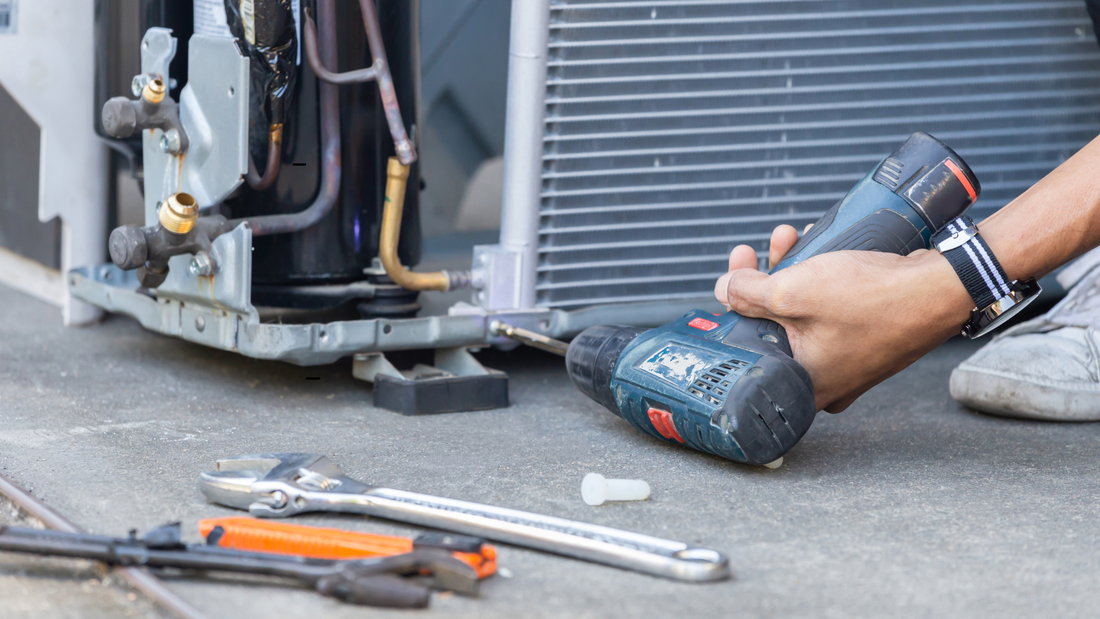
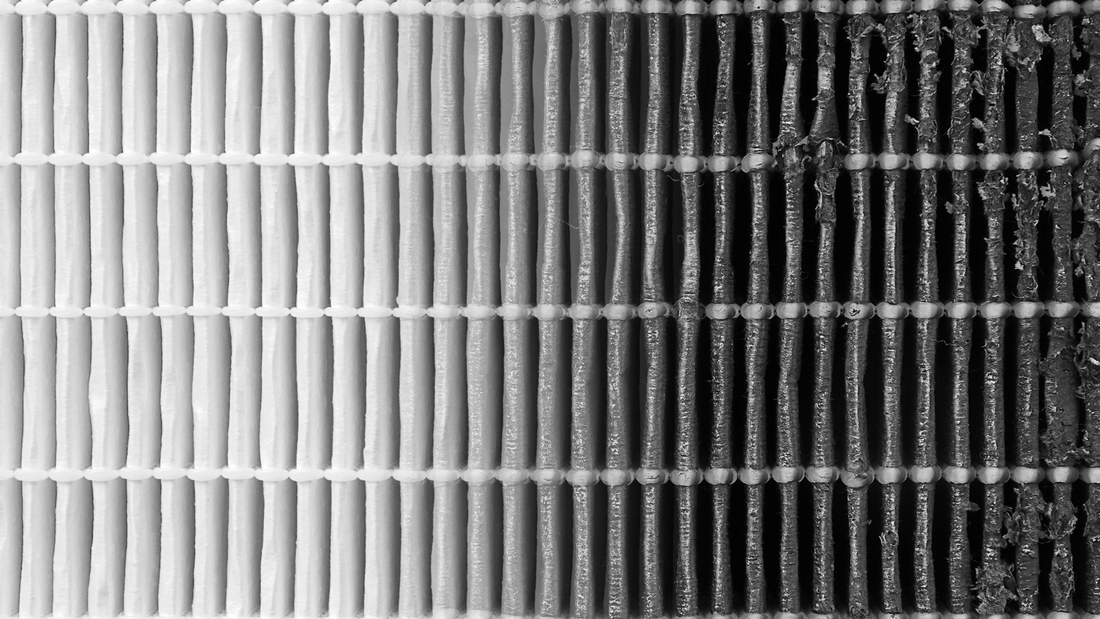
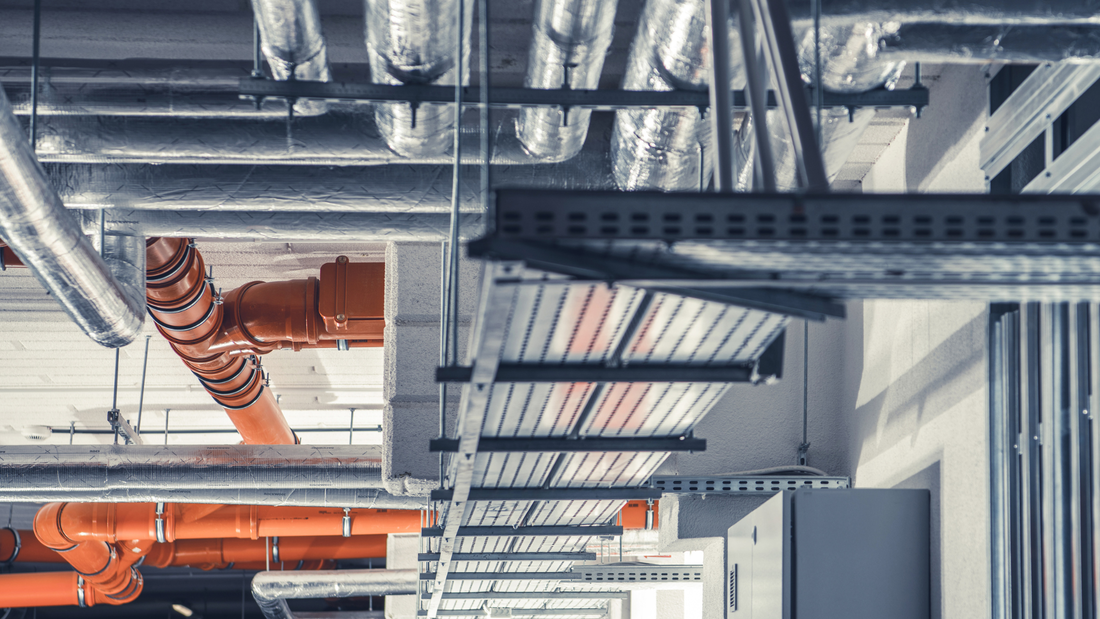
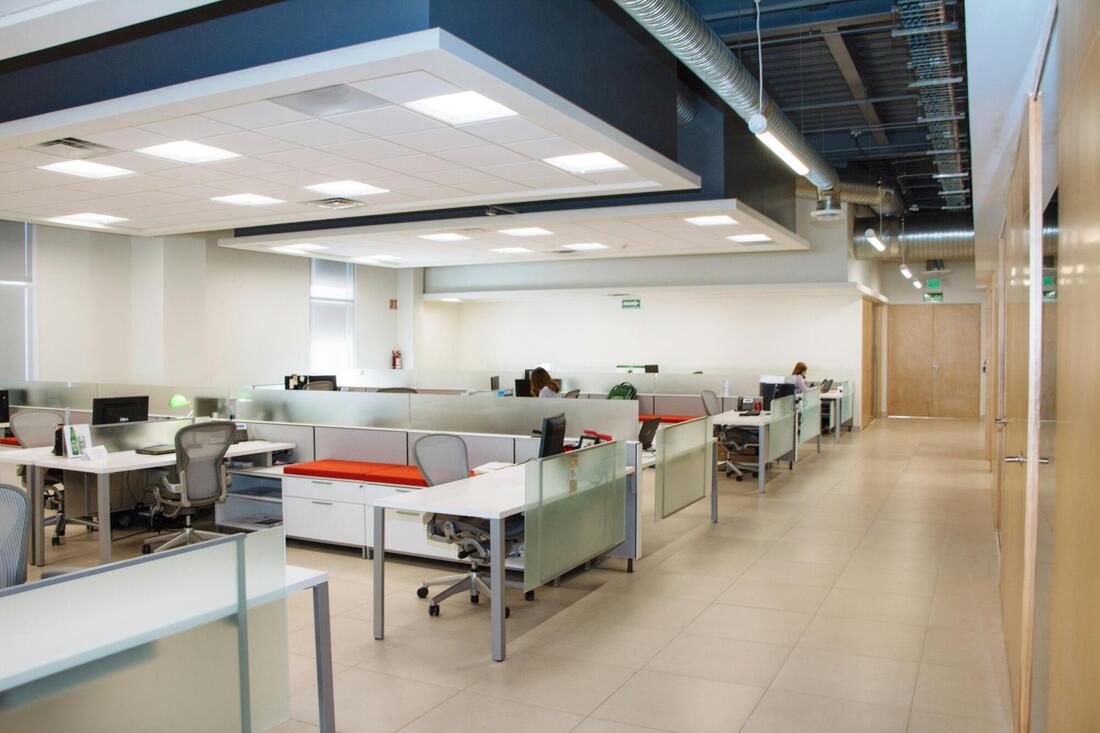
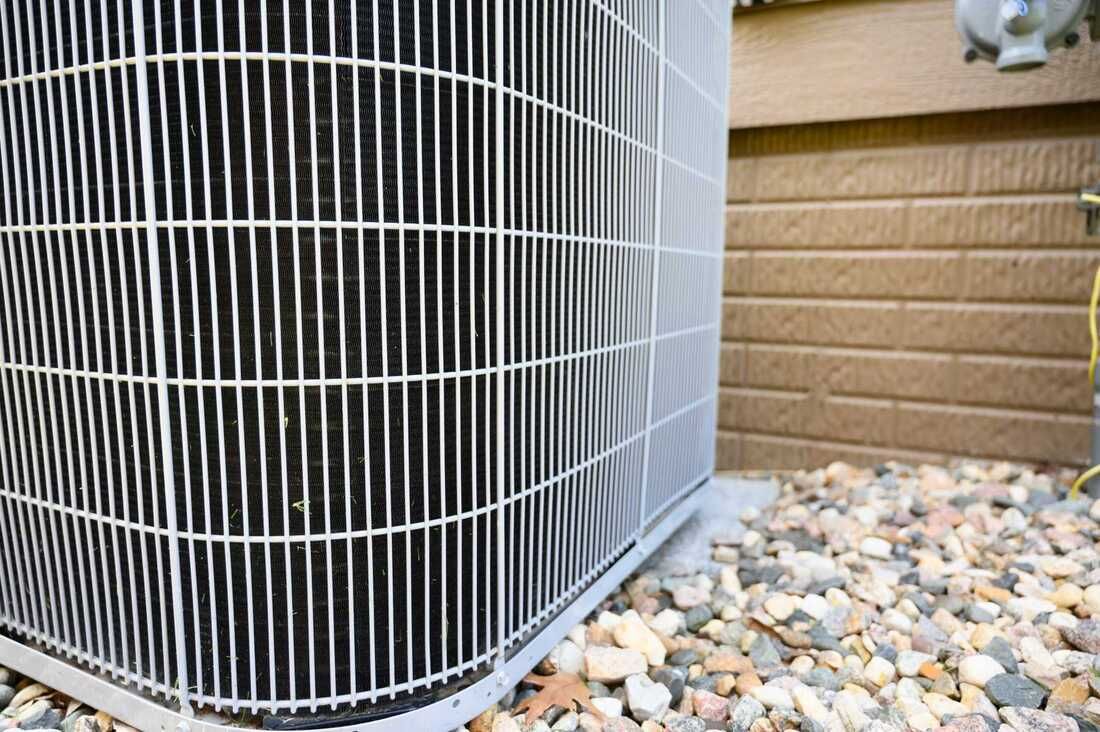
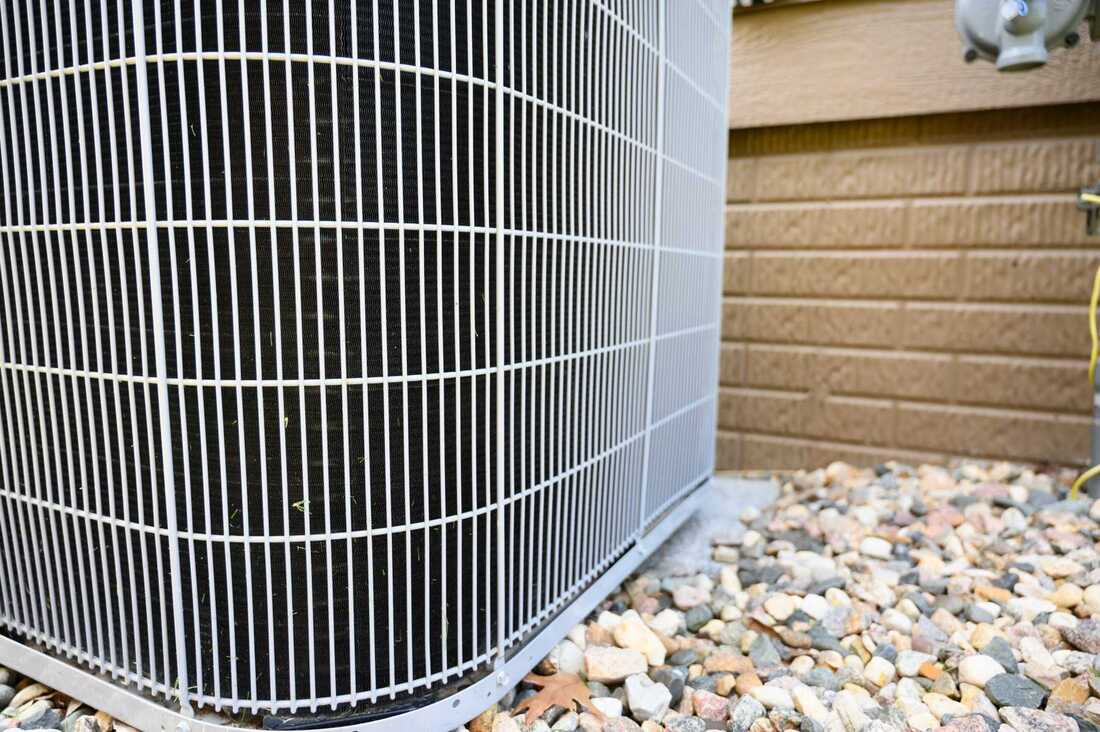
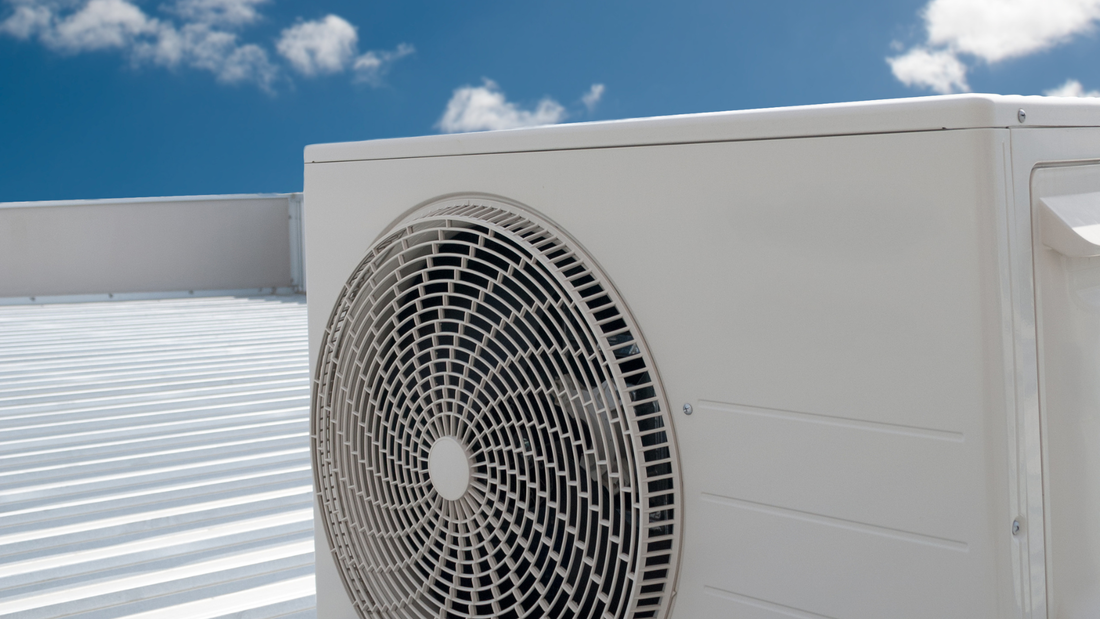
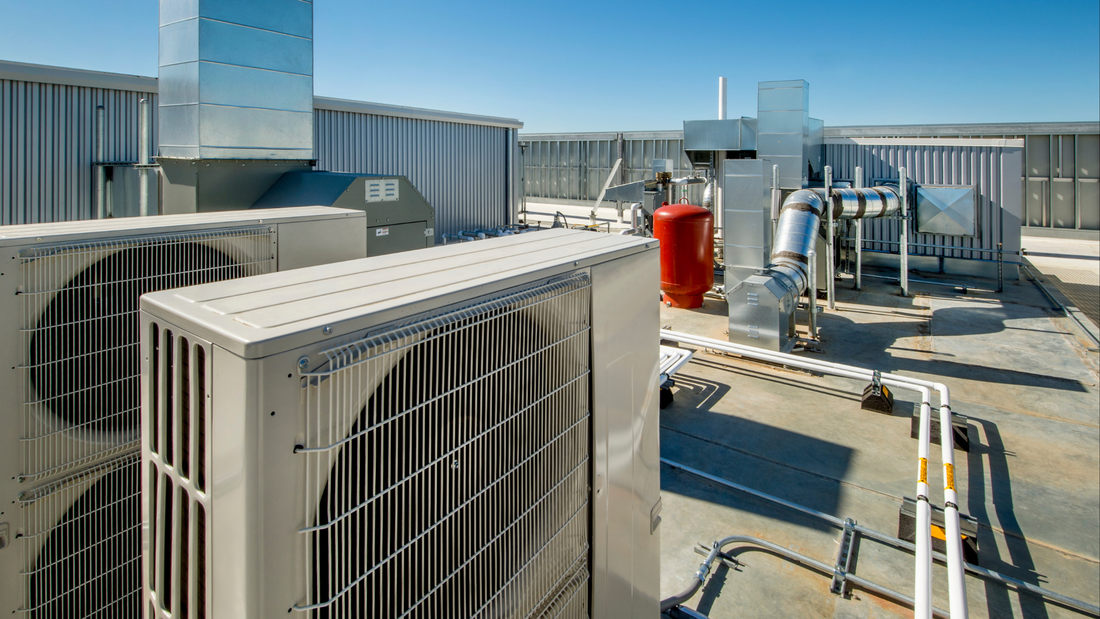
 RSS Feed
RSS Feed